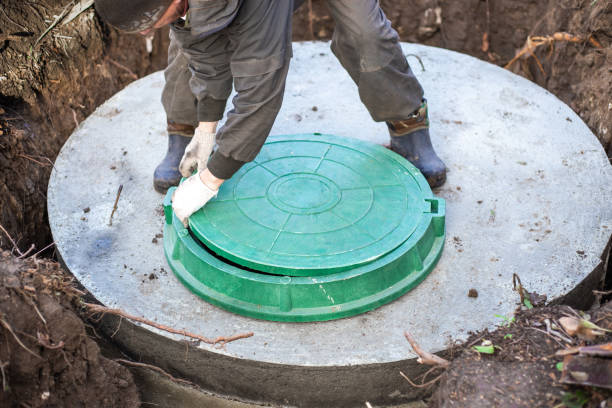If your home doesn’t have access to public sewer systems, chances are you rely on an underground septic tank to manage wastewater. These tanks usually last long, but even small issues can cause big problems like flooding or unstable ground.
As a homeowner responsible for your septic system, you might face a common question: should you repair it or replace it? It’s a tough call since one option can be much more pricier than the other.
Choosing a quick and cheaper fix might seem tempting, but it could risk the system’s effectiveness and longevity. Deciding whether to repair or replace your septic system is a crucial choice for homeowners. It requires careful consideration of costs, potential risks, and long-term benefits.
In this blog, we’ll explore the factors to weigh when making this decision, providing insights to help you navigate and choose the best course of action for your septic system needs.
How to Decide Whether to Replace or Repair Your Septic
When homeowners encounter multiple costly repairs for their septic systems, they often wonder whether a complete replacement might be necessary. However, deciding on a replacement, which can cost between $3,000 and $9,500 on average, shouldn’t be rushed.
It’s best considered a last resort after exploring all other feasible options. While initial repairs might seem more budget-friendly, continually fixing the system without addressing underlying issues could lead to larger expenses in the long term. Understanding whether a complete septic system replacement or repairs are needed can be puzzling for many homeowners.
Seeking guidance from septic experts becomes crucial, as they provide helpful advice and reliable service. A professional assessment is essential to determine if frequent repairs indicate a failing system that requires replacement. This ensures a cost-effective and sustainable solution tailored to your septic needs. Start by identifying the problem and getting a repair quote to gauge if a fix is feasible.
Signs You Should Replace Your Septic Tank
Recognizing signs that indicate a failing septic system is crucial when considering a replacement. This need may arise due to neglecting maintenance or external damage affecting the system. Even with proper care, septic tanks have a limited lifespan. As they age, they become less effective, leading to potential issues.
Spotting signs of a struggling system is essential. Persistent issues such as foul odors, slow drainage, or frequent plumbing backups are clear warnings that require attention. These problems can indicate various issues, including a full tank, clogged pipes, or a failing drain field. Ignoring these signs might exacerbate the problem, potentially leading to more extensive damage and costly repairs.
Furthermore, the age of the septic tank is a significant factor. If a septic tank is over 20-30 years old, it’s likely approaching the end of its functional life and might require replacement. Aging tanks tend to deteriorate, developing structural weaknesses that compromise their effectiveness.
Neglecting regular pumping can cause problems in the drain field, leading to sludge buildup and wastewater pooling, potentially necessitating a full system replacement. Regular maintenance, including periodic pumping, is vital to ensure the proper functioning and longevity of the septic system.
When You Should Repair Your Septic System
When you’re weighing your options for fixing your septic system, some clear signs suggest repairs might be the way to go without having to opt for a complete replacement. For instance, if you notice smaller issues like a minor pipe leak or a clogged filter, addressing these problems early on can prevent them from escalating into bigger and costlier concerns.
Plus, it can save you a significant amount of money that a total replacement would demand. Moreover, if the assessment from the experts indicates that the majority of your system is in good shape, and it’s only one particular component that needs attention, choosing repair work can be a practical choice.
This way, you can focus on fixing the specific issue without the inconvenience and hefty expense of completely overhauling the entire system.
Conclusion
Deciding whether to repair or replace your septic system is a crucial financial and functional choice for homeowners. While immediate repairs may seem cost-effective, overlooking persistent issues can lead to more significant expenses. Recognizing signs like odors and slow drains signal the need for a replacement, whereas timely repairs for minor problems, assessed by experts, can extend the system’s life and save costs.
Seeking professional advice is vital to discern if recurrent repairs indicate a failing system requiring replacement. Balancing short-term expenses with long-term benefits is key. The decision should ensure continued efficiency and reliability in managing your property’s wastewater.
Considering a replacement or repair for your septic system? Look no further—we’re here to assist you.
Ready to make the right decision for your septic system? Consult with our VI Reel Septic and Excavations professionals today for expert guidance on repair or replacement options! Don’t delay—ensure your property’s wastewater management stays efficient and cost-effective. Contact us now for a thorough assessment.


